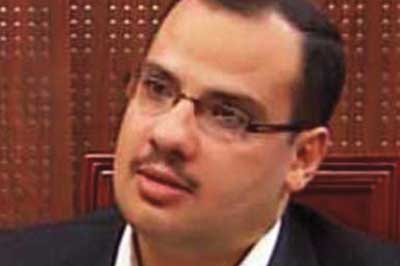The horrific bloody bombings that targeted innocent civilian Christians who were at the height of their sanctity in Egypt, brings the phenomenon of blind terrorism and indiscriminate killings witnessed by the Arab region back to the surface. Such a phenomenon is unprecedented in quantity or quality, as the nation has never, in its history, witnessed such a state of disregard for the lives of innocents, as is the case now. Furthermore, churches have never been this prone to targeting and attacks, but rather were places of shelter and protection of civilians against war and killing throughout the various Arab and Muslim conflicts.
The first incident of targeting places of worship and innocent civilian worshippers in modern Arab history was when the Zionist terrorist Baruch Goldstein committed his abominable massacre against innocent civilians in the Ibrahimi Mosque in the Palestinian city of Hebron.
Throughout the past years, decades and even centuries, Christians have not been subjected to systematic targeting in the Arab region. In addition to this, Islamic jurisprudence teachings, which form the basis on which Muslims deal with others, prohibit the bloodshed of Christians. Moreover, the Christians are an integral part of the Arab society’s fabric and the region has never witnessed a state of war against them or targeted them (with the exception of Lebanon during the civil war, and the conflict had various political aspects and dimensions and was not religious at any point).
Read: church bombing in northern Egypt
The state of blind killings and indiscriminate terrorism has expanded across the Arab region, even reaching the point of targeting Christians in their churches and Shias in their mosques and shrines. This is unprecedented, even Al-Qaeda did not kill them throughout their years of activity and did not target them. This indicates that Daesh is more extreme, as it organises such operations at a time when many doubt that this organisation, despite its extremism and terrorism, is actually behind such heinous and atrocious operations. This is especially true in Egypt, as Mubarak’s regime has, in the past, been involved in bombing the Saint’s Church in Alexandria on 1 January 2011 in order to relieve some of the pressure and tension on it then. This occurred only a month and a half before it was toppled.
Accepting that Daesh actually carried out the simultaneous bombings that targeted three churches in Egypt is a new development that carries a number of indications and signs that are very important. The first of these indications is that the organisation is expanding across the country day after day, and everything that is being reported to us about the army operations in Sinai is meaningless. This is because the quality of the attacks carried out is increasing, as well as the quantity of attacks, and the organisation is now able to carry out three attacks simultaneously in areas far from its centre (Sinai).
The second indication is that the terrorist operations developed in light of the current government in an unprecedented manner. This means one of two things, both of which are bitter: either the government failed in its war on terrorism and must admit that it is no longer able to deal with and confront the phenomenon, or the government is involved in reinforcing this phenomenon in order to use it against its political opponents. It can use it under the pretext of needing to inform the Egyptians about a major enemy and wild beast that threatens them and claiming that the only way they can be saved from the enemy is by embracing the government and its security agencies and accepting any measures taken by them.
Read: State of emergency declared in Egypt
Regardless of the indications and significance of the recent bombings and whether or not we can criticise the government in Egypt because of them or not, it is certain that the phenomenon of blind terrorism and indiscriminate killing is present. It poses a great challenge for the Arab region as a whole and this phenomenon cannot be confronted and addressed without enhancing the tolerant moderate Islamic movements and allowing them to operate and exist in society. This is because they alone are capable of spreading the idea that Christians are Egyptian citizens, just like Muslim citizens, have the same rights and responsibilities and are a part of the country’s social fabric. They are also able to spread the idea that Christians are integral parts of the region where Christ was born and which was and is a haven for all heavenly religions.
Moreover, openness and the promotion of public freedoms, as well as opening the door to the youth to participate in politics based on democratic foundations and on mutual respect, are all important factors to fight the phenomenon of terrorism and violent tendencies. The youth have given up on change and getting a chance to participate in politics, and this makes them feel marginalised and pushes them towards secret and violent organisations. Therefore, the democratic transition in the region is one of the ways to combat terrorism and blind violence, while leaning towards oppression, tyranny and repression is an incubator for all negative manifestations. In short, the Arab region needs a new wave of democratic transformation to protect it from the crashing waves of terrorism that have taken over the region.
Translated from Al-Quds Al-Arabi, 11 April 2017
The views expressed in this article belong to the author and do not necessarily reflect the editorial policy of Middle East Monitor.

![Blood and damage to the benches are seen after a bomb went off inside a church which claimed the lives of more than 21 people in Tanta, Egypt on 9 April 2017 [İbrahim Ramadan/Anadolu]](https://i0.wp.com/www.middleeastmonitor.com/wp-content/uploads/2017/04/2017_4-10-Blast-hits-Egypt-church.jpg?fit=920%2C613&ssl=1)







